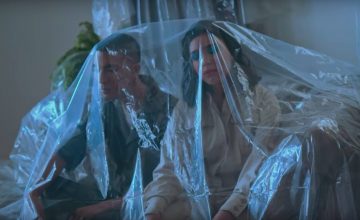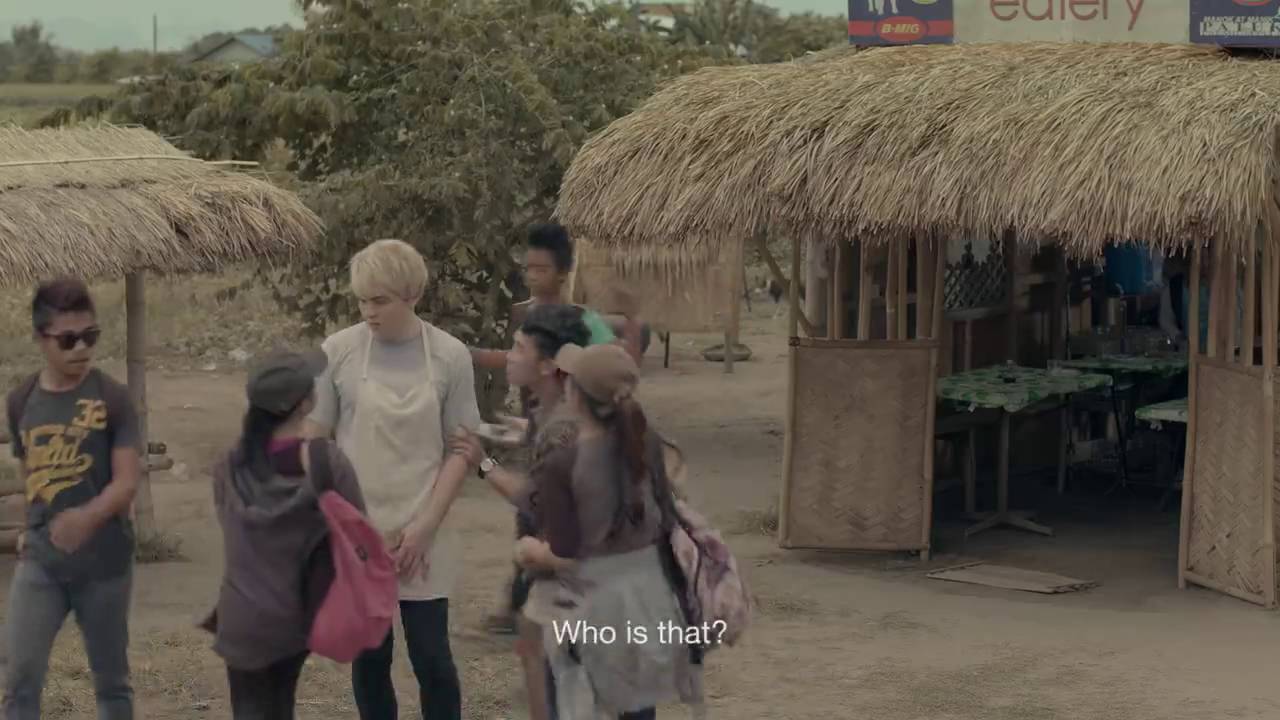[Warning: This article contains spoilers and mentions of specific scenes from “Gilmore Girls”.]
There is only so much you can do with expectation. Sometimes, it can serve as your inspiration to do better. But other times, it can cause you to break under pressure. When it comes to this, one poster child this generation sees is Rory Gilmore.
I, for one, love “Gilmore Girls”. It is a comfort show for a reason. Set in the charming and cozy fictional town of Star Hollows where everybody knows each other, and in a time when technology wasn’t as rampant, we meet a tight-knit mother and daughter duo. They are each other’s best friends, and more importantly, the characters love coffee as much as I do. (Heck, I love coffee so much even though my acidic self isn’t supposed to drink it.) And after seven seasons with their eating habits at that, it is a surprise both Lorelai (Lauren Graham) and Rory (Alexis Bledel) did not have any on-screen stomach issues by the end of the series.
But to gush over my love for “Gilmore Girls” is not why I’m writing this. Although I would have no problem with that either way (especially because Lauren just blessed us by being active on Instagram, plus Alexis made her first red carpet appearance after the pandemic), now isn’t that time.
View this post on Instagram
The downfall of Rory Gilmore
I hated Rory’s later-season character arc—heading to Yale and slowly spiraling after that—until I understood that it wasn’t entirely her fault. It was because of the expectation placed on her by everybody that allowed her to grow up (or lack thereof) the way she did. It was unspoken, but almost everybody, including Lorelai and maybe even Rory herself, expected her to do better and to not be like her mom. However, she ended up in a much worse place.
In their 2016 revival “A Year in the Life,” we saw Rory navigate adulthood in a way we would not have rooted for her to do, especially with how she was in the earlier parts of the original series. Because frankly, her later-season fall—stealing a yacht, dropping out of Yale, and then losing her virginity (although it’s a social construct) to her then-already-married ex Dean—were already telling signs of how she deals with rejection (or not really).
Now, those might have been bad then, but what she was doing in “A Year in the Life” was much worse. These include having an affair with her college ex Logan Huntzberger, whose proposal she turned down after college graduation. She was also already engaged to someone else, then cheated not once but twice on Paul, her conveniently forgettable boyfriend of two years, and not even tried at a field she tirelessly worked hard for when she was younger.
And although many might disagree, it was a realistic trajectory for Rory’s character to follow. It might not have been ideal, especially since many of us wanted to be like her (at least during her Chilton days), but it’s not unusual for this to happen. Her best friend Paris (whom Rory never actually acknowledged as a best friend) actually researched that Ivy League valedictorians don’t do well later in life.
While some might take this as Paris’ lack of EQ and projecting her insecurity onto Rory, she was actually proven to be right on the money as early as when Rory’s Yale life was crumbling. And although Paris’ Yale days weren’t always sunshine and rainbows (she had an affair with an older professor and also didn’t exactly do well as the editor-in-chief of the Yale Daily News), rekindling with her character in “A Year in the Life” shows us that she was in a better place than Rory, despite her own issues.
Don’t get me wrong, though, this isn’t to pit friends against each other. Paris may have some unconventional methods—not to mention some unhealthy habits herself—but she did arguably work not only harder but also smarter than Rory that really made her deserving of everything she had going on. As the saying goes, you reap what you sow—this remains true both ways, even for Rory.
At her grown age of 32 in the revival, there was literally no room for her to be acting even worse than 16-year-old Lorelai
Surely, some of her behavior could be attributed to trauma and how all her life she was overpraised by everyone she was with. Even if in the beginning she was deserving of the praise, it would be easier to empathize with her behavior if she were younger. But at her grown age of 32 in the revival, there was literally no room for her to be acting even worse than 16-year-old Lorelai.
She didn’t want to work at Sandee Says, a blog that has been urging her to write for them. Rory thought she was too good for them, having a few bylines here and there, only to end up worse than where she started at the Stars Hollow Gazette. There, she worked for free to save it and started on the memoir Jess hinted at her to do, without getting her mother’s approval first.
View this post on Instagram
The burnout of the brightest
However, to allow her some grace, it’s not at all surprising for this to happen. Overachieving students like Rory who start working hard at an early age tend to get pulled into the depths of burnout. To be truly fair to Rory, I think her downfall really began when she chose to go to Yale, trying to follow her grandfather Richard’s study load. She only ended up having to face the truth that she just couldn’t handle it, and she needed to drop a class or accept she failed it.
More often than not, some unexpected realities happen after graduation when you’re no longer in the confines of the classroom’s four walls. There are harsh twists that affect even the most stellar and promising students who are expected to deliver well in their career path—think Liza Soberano’s bright-eyed character in the 2019 movie “Alone Together,” who eventually got lost in her way.
More often than not, some unexpected realities happen after graduation when you’re no longer in the confines of the classroom’s four walls
You come out of college brimming with so much hope, only to deal with real-life adult issues like office politics, exploitative workplaces, toxic work environments, corruption, sudden layoffs, and sometimes even business closures. And honestly, sometimes, it doesn’t even have anything to do with you. It wasn’t something you directly caused yet you still feel so defeated and lost. You sometimes even feel like you’ve failed because things didn’t turn out the way you’d expected, or at least hoped it would.
As a student and also as an aspiring writer, watching “Gilmore Girls” made me relate to Rory in more ways than I think I could admit. One of the similarities we shared was how different circumstances showed us the reality of our career path at an early stage.
For Rory, this was during her internship at the Stanford Review where she got real talked by Mitchum Huntzberger (yes, her boyfriend Logan’s billionaire dad who is the newspaper guy) about how she didn’t have what it takes to be a journalist but could make a good assistant. This eventually caused Rory to go on a spiral and drop out of Yale.
For Rory, it happened when she was still a student. To me, it happened after graduation.
Sure, we both had to face challenges early on in our careers. What matters is allowing yourself the grace to carry on. It doesn’t mean you’re a failure or you’re wasting your potential
When you’re still young and full of life as a fresh graduate—or someone still relatively new and starting out—seniors dote on your enthusiasm. They would make comments about how they miss the days they still had the spark in them. At first, it may not make so much sense, but sooner or later, you’d realize you’re slowly losing your light, too. The days when you were so idealistic suddenly start to fade, you notice the cracks and fall into them—even when you’re careful. Among the cracks you could fall into is realizing the field you worked almost your whole adult life to get into is starting to crumble and you’re faced with media closures and layoffs here and there, and worse, it’s actually happening to you, too.
But sometimes, reality just really bites you in the ass like that. You become the recipient of kind words like, “It’s not your fault” or “That doesn’t mean you’re not good enough,” but why does it feel like it?
I hated Rory’s downfall, until I resonated with it
But like the famous saying goes, “Fall down seven times, stand up eight.”
Rory may have dropped out of Yale, but she soon comes back and gets another chance as Yale Daily News’ editor-in-chief immediately upon her return and after the coup against Paris. Mitchum later on also took credit for Rory’s achievement. After graduating college, she would be off to a promising start to her career, covering Barack Obama’s presidential campaign. And while we know how Rory (disappointingly but realistically) ends up in “A Year in the Life,” the difference between Rory and I is that I don’t need to make the same choices.
Sure, we both had to face challenges early on in our careers. What matters is allowing yourself the grace to carry on. It doesn’t mean you’re a failure or you’re wasting your potential.
It’s hard to ignite a spark that’s about to go out, but there are ways to fan it. Rory may not have been able to look for it, but I can.
Photos from @gilmoregirls/Instagram
Read More:
Liza Soberano and the curse of adulthood in “Alone/Together”
10 films to watch if burnout is getting the best of you
If you’re scared of adulthood, here’s some advice from Honne
























Comments